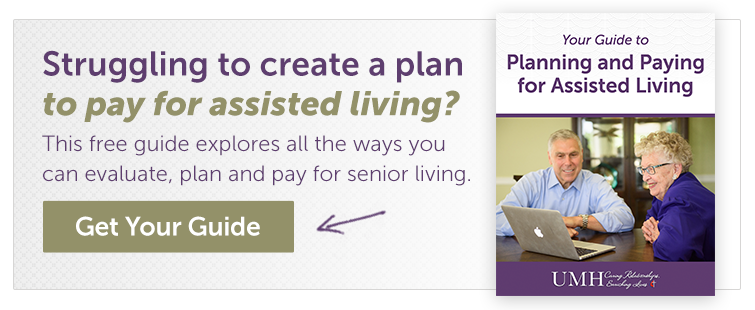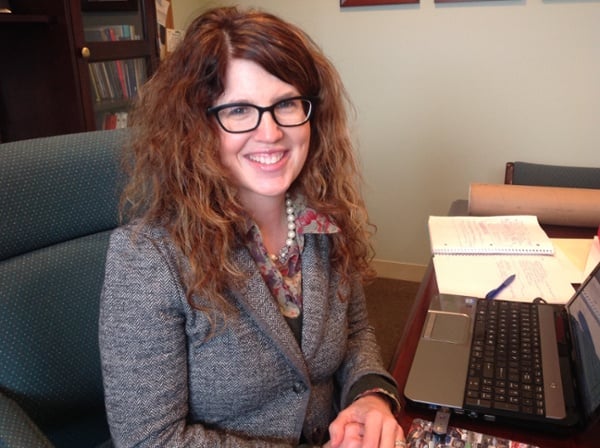Running out of money is a real possibility for some who have made senior living communities their home. The money runs out for a number of reasons and common among them are: longevity (the average length of stay in assisted living is 2.5 years but many live there significantly longer) increasing rental costs, increasing costs in senior health care services and a need for more assistance with activities of daily living (ADL) than before. There are others, but these situations just mentioned place an immediate draw on private funds.
When the money runs out where should you turn for financial help? Don’t lose heart; consider these strategies and support options that will help you fit quality care within a limited budget.
Need help planning for senior living costs?
Download Our Free Guide "Planning and Paying for Assisted Living"

Seek Free Financial Advice to Afford Senior Living
Professional financial advice is always a good start in helping you make the right decision. A financial advisor can recommend options based on personalized knowledge of your assets. Choose from these resources:
- Resource Locator Tool – this is an online tool that helps families identify the right assistance program for them. It’s fast, free and simple to use. You will need to fill-out a form, answering relevant questions to help the provider find the most suitable resource for you.
- State Social Service Agencies – they are local resource centers that will help families identify assistance programs they are eligible for.
- Resident Service Coordinators in Assisted Living communities – find out if there is a social worker right there in your community to help you with financial options. Sometimes, communities offer different levels of care options and their staff can help you determine which choice is best for your loved one.
Note, for a reasonable fee Eldercare Resource Planners can effectively help families identify all possible financial options and help them implement a plan.
Seek Immediate (Short-term) Solution – Senior Care Bridge Loan
A unique loan system, “Elderlife Line of Credit” is a convenient loan instrument that allows multiple family members or friends (up to 6 co-contributors) to share the cost of paying for eldercare. Once setup, payments are made from the account direct to assisted living or care providers.
Tap into Local Community Programs for Seniors
Many seniors can reduce their costs by accessing a variety of local, community care services (which can provide assistance with ADLs, chore services, etc). Area Agencies on Aging is a government program that coordinates these services, usually free of cost or at a low rate for individuals who qualify.
Change your Location
Senior care residences in the countryside or suburbs are noticeably cheaper than those in the city. Find an assisted living home that is manageable on your pocket outside your zip code.
State Funded Assisted Living Program
Some states offer programs that provide financial assistance to help cover the cost of assisted living facilities and other dwellings.
Future Planning
For caregivers: It is a good idea for families to engage in some form of financial planning ahead of time to supplement mom and dad’s stay at assisted living. Should your parents run out of funds, Medicaid may fill the gap without delay and without being placed on ‘standing by.’
Key Takeaways:
- The reality of living in a senior housing community is that the money may run out.
- Professional financial advice is always a good start point.
- A senior care bridge loan is a short-term flexible loan instrument for seniors that begin immediately.
- Tap into local community services for seniors to lower overall costs.
- State and federal programs may provide assistance in covering the costs of senior living.
Need Help?
Learn more about how to afford senior living in our free resource "Your Guide to Planning and Paying for Assisted Living."







